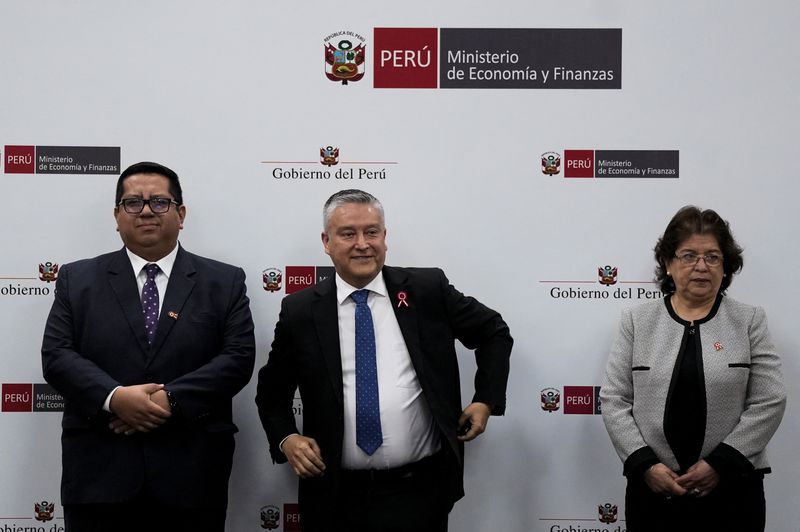By Marco Aquino
LIMA (Reuters) -Peru on Thursday lowered the country's economic growth forecast to 3.3% this year, the finance minister said, and officially abandoned a plan to hike taxes on the mining industry amid falling metal prices, high inflation and slowing growth.
The new forecast is significantly higher than the Refinitiv average of 2.6% but is lower than the 3.6% the ministry had last forecast in May.
Finance minister Kurt Burneo said the government would soon launch a package to boost the economy, although he declined to give details.
"The economy is growing at lower levels than what we need," Burneo told reporters. "If we don't do anything, we will only aspire to low growth levels."
Still, the downward revision came on the back of "transitory supply shocks" that affected the primary sector in the first half of the year, including social unrest against the mining sector, and less favorable external conditions, the ministry said in a report.
Peru, the world's No. 2 copper producer, is also expecting prices of the red metal to fall in 2023. It plans for higher production to offset the fall in tax revenue.
Leftist President Pedro Castillo came to office a year ago promising to hike taxes on the mining industry to fund social programs, although Congress shelved the initiative.
Burneo is the administration's third finance minister and was appointed just three weeks ago. He said hiking mining taxes would amount to "shooting ourselves in the foot" but has insisted public spending needs to grow.
He added Peru's budget should grow 4% in real terms in 2023.
For 2023, the Andean country forecasts growth of 3.5%, higher than the Refinitiv average of 2.8%, boosted by a larger mining supply and the normalization of economic activities hurt by the COVID-19 pandemic.
Peru expects Anglo American (LON:AAL)'s Quellaveco copper mine to come online in 2023 and boost copper output that has fallen 10% so far this year due to community protests that affected two large mines owned by MMG Ltd and Southern Copper (NYSE:SCCO) Corp.

Earlier this year, it also faced a wave of anti-government protests sparked by rising fuel and fertilizer prices in the wake of the Ukrainian war, while Castillo has reshuffled his cabinet several times as prosecutors investigate his close allies and family members.
The South American country has also been grappling with inflation, which reached the highest level in a quarter of a century in June.